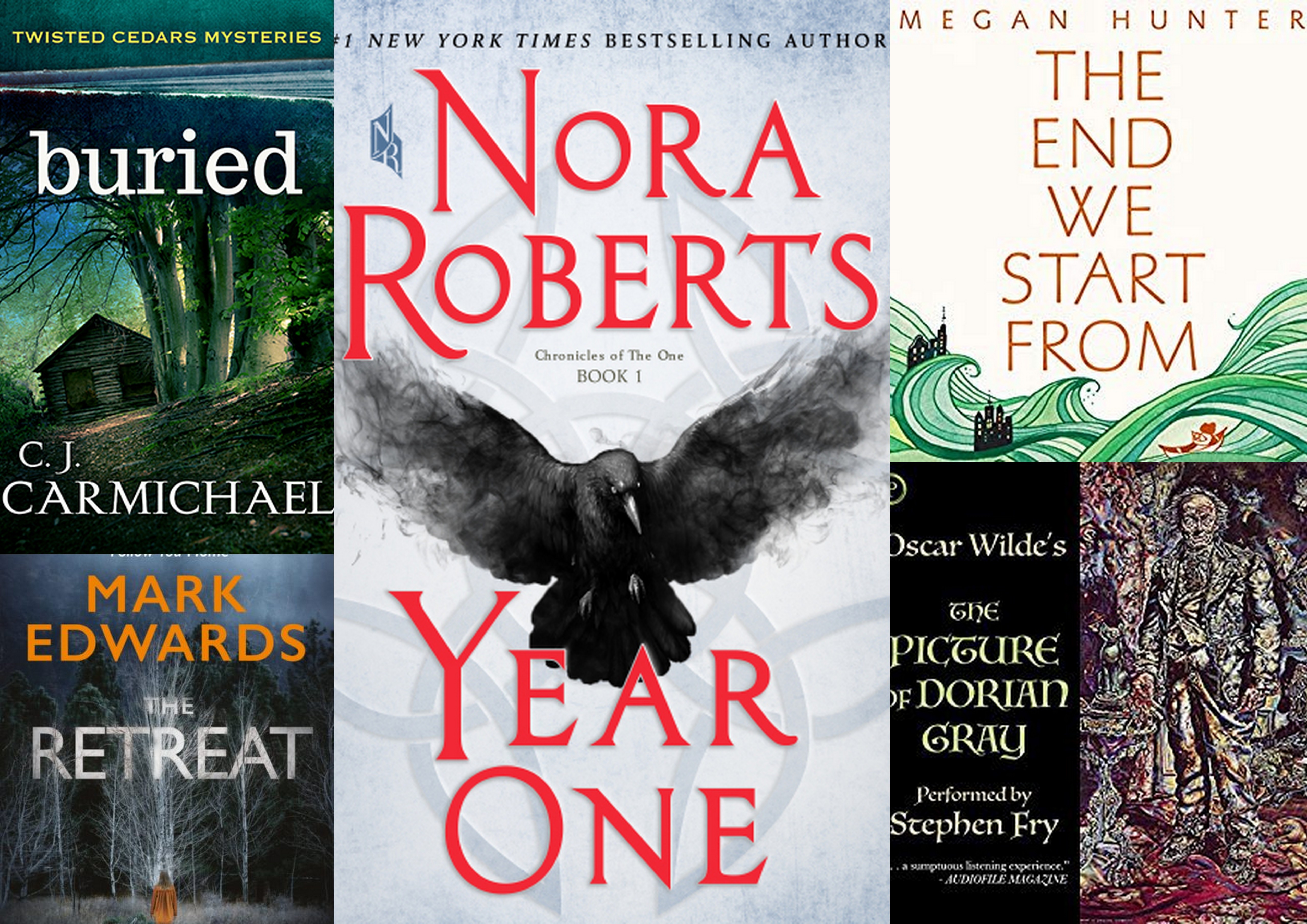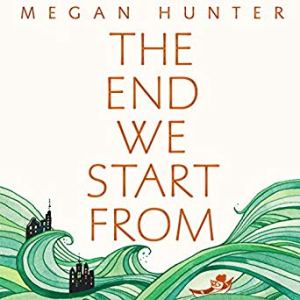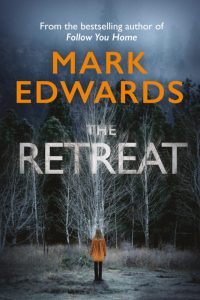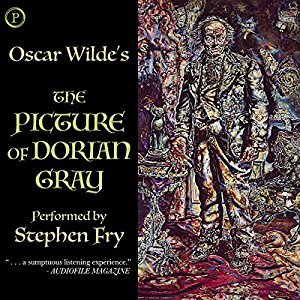
These are the five books that disappointed me most this year and an explanation of why and how they got under my skin.

 "Year One"disappointed me not because it's badly written or poorly structured but because I found myself deeply out of sympathy with the values of the Good Guys, annoyed at the saccharine romance of the alpha pair and turned off by the obsession with fate and Messianic redemption.
"Year One"disappointed me not because it's badly written or poorly structured but because I found myself deeply out of sympathy with the values of the Good Guys, annoyed at the saccharine romance of the alpha pair and turned off by the obsession with fate and Messianic redemption.
"Year One" is a sort of urban fantasy twist on "The Stand". It tracks the path of groups of survivors of "The Doom", a virus which kills anyone who is not immune. As billions die, some of the immune discover latent magical powers and find themselves drawn to The Dark or The Light.
In the world according to Nora Roberts, the secret to surviving the apocalypse is to band together with skilled people, preferably from privileged backgrounds, who embrace middle-class values, choose faith over fear, work together as a team and focus on "doing what comes next". Of course, emergent magical powers are also pretty useful.
These traits and values were portrayed so positively that they slid into my imagination already tagged as a Good Thing. Then I thought about the scale of loss, of the billions dead, of cultures across the world extinguished, of losing everyone you ever loved, of having the value of your previous life challenged or eroded and it seemed to me that the main characters react almost as if they're on medication.
The ability to focus "on what needs doing" is certainly a survival skill but the ease with which these newly-gifted previously-privileged people did it, their unthinking adoption of the "I'll protect Us against Them" made it difficult for me to empathise with or care about them. That these oh-so-focused folks are The Light seemed questionable to me.
Then Roberts cranked up my discomfort by constantly maintaining that some things are "meant", that they're part of a "destiny", that it isn't enough for people to be attractive, privileged, educated and have magical gifts, they also have to have some kind of pintable-tilting agents of fate on their side.
What finally extinguished my interest in this series was the idea of a Messianic "One" being sent to save the world. It's too "In God We (white, beautiful, magically-endowed people) Trust" for my British Athiest sensibilities.
 I got three-quarters of the way through "Buried" before abandoning it.
I got three-quarters of the way through "Buried" before abandoning it.
Why put it aside so close to the end? It had become obvious that this wasn’t really a complete novel. I was sliding towards a cliff-hanger ending and would have had to wade my way through another book, perhaps two, to get any real resolution. I hate that.
Why did I let myself get so far into the book? Well, the premise of a librarian-slaughtering, cold-case serial killer being investigated by a famous true crime author who has to return to his left-as-soon-as-I-could-and-never-went-back hometown seemed intriguing. How can you go wrong with that?
C. J. Carmichael managed it by writing all the characters at arms-length so that I felt I was reading a profile rather than meeting a person. Throw in the fact that the crime writer turns out to be a weak, undisciplined man who has never grown up and who does not meet even the few commitments he makes and I was losing interest in him solving any murders.
Even the writer's must-be-the-baddy soon-to-be-brother-in-law, my last hope of a good sub-plot came straight from the how-to-define-a-narcissist handbook and had no personality as an individual.
I felt like I was one step away from watching “The Bold and the Beautiful” with a garnish of librarian-slaying.
 I bought "The End We Start From" as an audiobook. It has an intriguing end-of-days setting. It's poetic in its intent and execution. It's been highly praised and heavily hyped. It's two hours and two minutes long and yet it felt like a test of my endurance.
I bought "The End We Start From" as an audiobook. It has an intriguing end-of-days setting. It's poetic in its intent and execution. It's been highly praised and heavily hyped. It's two hours and two minutes long and yet it felt like a test of my endurance.
I found the lyricism self-conscious and over-wrought. There are many fine sentences but having them layered endlessly on one another becomes a burden of blessings. The whole here is much less than the parts.
The rhythm is punishingly slow. The narrative drifts through dense prose that is vivid but directionless. There is no "why?", no "what next?" just a relentlessly drab "right now" that is soaked in dispassionate disassociative observation.
This is probably a wonderful book in the same way that Philip Glass probably writes wonderful operas, it's just that neither of them is for me.
 "The Retreat"is probably an interesting horror/mystery story. It has a lot of the right elements: a child thought dead but who we know to be abducted, the dark dark woods in the dark dark valley in a dark dark Wales, a set of writers at a retreat, trying to write but finding themselves haunted and a main character with a tragic past (of course) who has just had a hit with a novel about a monster abducting and eating children.
"The Retreat"is probably an interesting horror/mystery story. It has a lot of the right elements: a child thought dead but who we know to be abducted, the dark dark woods in the dark dark valley in a dark dark Wales, a set of writers at a retreat, trying to write but finding themselves haunted and a main character with a tragic past (of course) who has just had a hit with a novel about a monster abducting and eating children.
I settled down for a few evenings of enjoying a creepy mystery in a warm room on dark cold nights and then found that the main impact of the book was to send me to sleep in my chair.
I attribute this mainly to the narrator, Simon Mattacks. Except when he is doing Welsh accents, at which he is quite adept, he narrates with a uniform cadence of the kind used by TV presenters on programs like "Escape To The Country": blokish, wannabe-charming, inoffensive rhythms that always trigger a mix of distrust and disdain in me, awakening my inner-Northerner who then mutters "wimp" and "smug git" in my ears.
I returned the book to audible and got a refund. I may come back to "The Retreat" in ebook format but I won't be listening to any more books narrated by Simon Mattacks.
 My main reaction on reaching the end of "The Picture Of Dorian Gray" was relief that I'd no longer have to spend any time in the company of the narcissistic parasitic men who populate it.
My main reaction on reaching the end of "The Picture Of Dorian Gray" was relief that I'd no longer have to spend any time in the company of the narcissistic parasitic men who populate it.
The central conceit of Dorian Gray's picture is as surprising as finding out that the Count living in Castle Dracula is a vampire. Even so, I had expected to enjoy how the story was told. Instead, I flipped from boredom with what I mentally labelled "A Single Shade Of Gray" to annoyance at just about every attribute and utterance of the main characters.
Dorian Gray starts as an entitled, over-privileged air-head, mainly notable for his cluelessness and his pretty face. He ends up as an even more over-privileged hedonist, mainly notable for his endless capacity to blame other people for the consequences of his own decadent choices.
Lord Henry, his mentor/corruptor suffers from verbal incontinence. The man ceaselessly spews out tiresome epigrams, the meretricious sparkle of which he uses both to prop up his ego and to sustain his endless self-deceit about his engagement with the world.

 7
7









